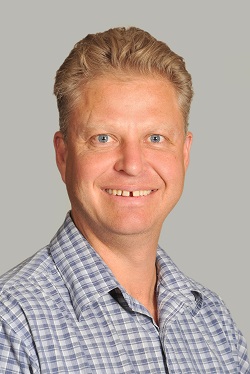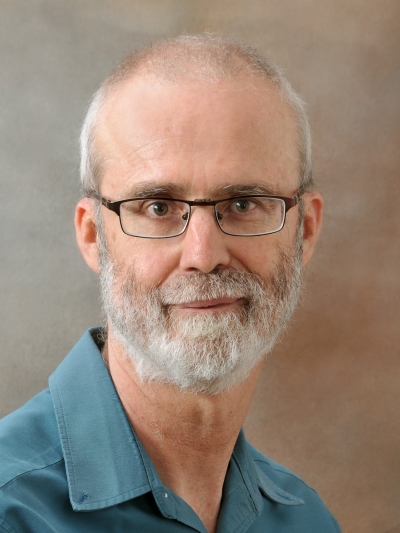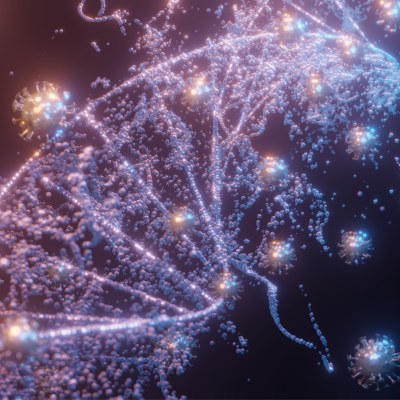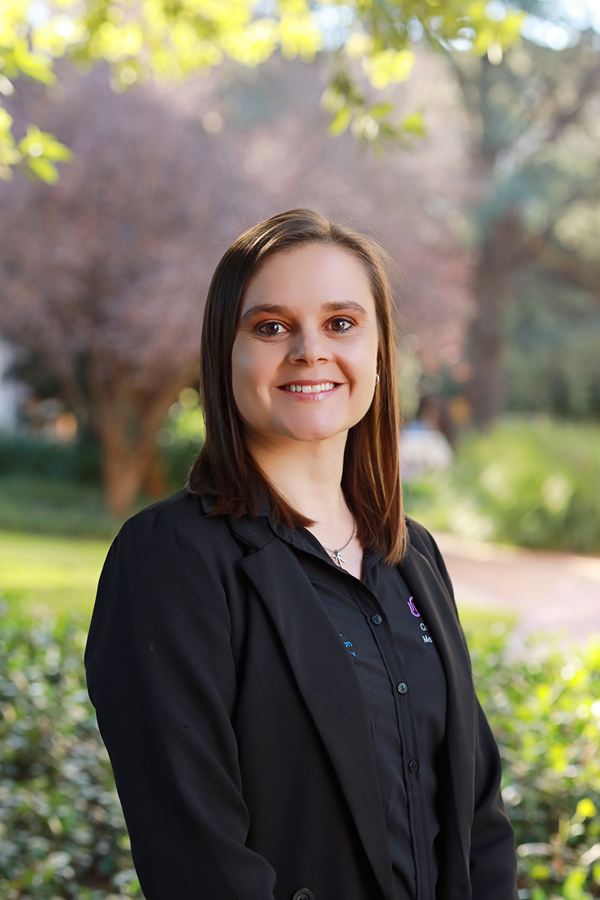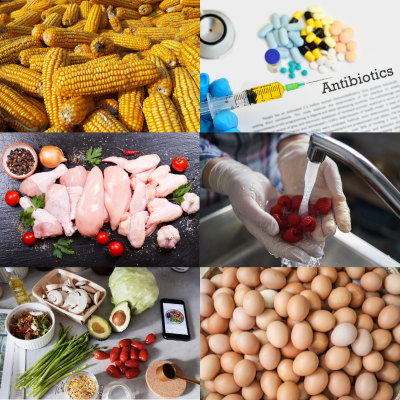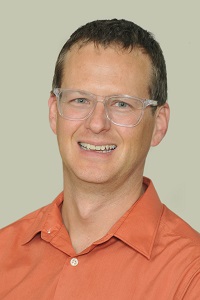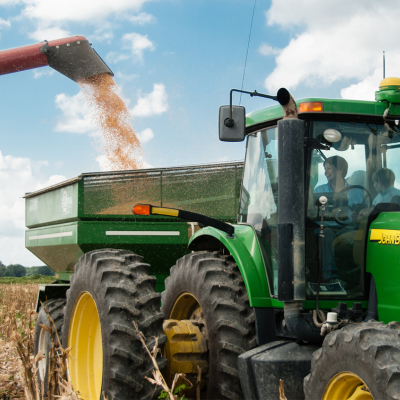
The Faculty of Natural and Agricultural Sciences is dedicated to pioneering research and innovation that addresses global challenges while driving sustainable development.
Our faculty is home to leading researchers, state-of-the-art facilities, and a collaborative environment that fosters ground-breaking discoveries in fields ranging from biotechnology and environmental sciences to data analytics and agricultural advancements.
Explore the cutting-edge research and innovation at the Faculty of Natural and Agricultural Sciences and discover how we are shaping the future of science and sustainability.
"Research is creating new knowledge."
– Neil Armstrong
Research Entities
Unit for Data Sciences and Computing (USDC)
Focus
The UDSC conducts fundamental and applied research in:
- Data Science: Collaborates with financial and telecommunications sectors, focusing on risk analytics and decision modelling.
- Computing: Integrates computer science and information systems for a holistic approach.
Highlights
- Strengthening research in financial modelling, machine learning, and information systems.
- Established a foundations subprogram emphasizing reflective practice and systems thinking.
Future strategic plans/ventures
- Enhance NRF ratings and research profile, particularly at VC.
- Collaborate with the South African Radio Astronomy Observatory on high-performance computing solutions for correlation applications.
Focus Area for Biomedical and Molecular Metabolism Research (BioMMet)
Focus
BioMMet aims to characterize the global metabolic response in health and disease. Alongside other ‘-omics’ technologies (genomics, proteomics), metabolomics enables a comprehensive bio-analytical characterization of living organisms, helping to unlock disease mechanisms that have remained elusive to scientists.
Highlights
- Strong alignment with the Centre for Human Metabolomics (CHM) and the National Metabolomics Platform (NMP), positioning BioMMet uniquely in South Africa’s metabolomics landscape.
- BioMMet focuses on basic and applied metabolomics as well as systems biology research, while CHM commercializes developed methodologies and research findings.
Future strategic plans/ventures
- Expand BioMMet’s Global Metabolomics Presence:
- Continue to elevate BioMMet’s standing as a leading entity in metabolomics by increasing its footprint both nationally and internationally. Active participation in key organizations such as Metabolomics SA and the International Metabolomics Society will ensure BioMMet remains at the forefront of the metabolomics community, driving research collaborations and global influence.
- Adopt a Comprehensive Systems Biology Approach:
- Broaden the scope of BioMMet’s research by integrating additional “omics” technologies (e.g., genomics, proteomics, transcriptomics, lipidomics) alongside metabolomics. This systems biology approach will allow for deeper insights into metabolic networks, enabling the identification of more complex biological mechanisms and enhancing our capacity to solve challenging biomedical problems.
Centre of Excellence for Space Research (CSR)
Focus
The CSR is an internationally recognized research centre in Astronomy, Astrophysics, and Space Science. It hosts 25 permanent academics (including a SARChI Chair and several NRF-rated scientists) and over 30 temporary and extraordinary staff.
Highlights
- International recognition networks include H.E.S.S., CTA and other NASA-based projects.
- Exceptional equivalents, 10% of outputs in FNAS, including leading authors in Science and Nature.
- Coordination of the SA-GAMMA Consortium directly involving over 100 researchers (academic staff, postdocs and postgraduate students); hundreds of presentations at international conferences; and over 200 peer-reviewed publications (82 first-author) over 5 years. This includes an annual HEASA conference involving some 80 participants.
Future strategic plans/ventures
- Increasing the Radio Astronomy footprint at NWU and continuing to optimise our participation in the SKA and its pathfinders/test arrays like MeerKAT.
- Increasing the Space Science footprint nationally and internationally, through collaborations such as SANSA and NASA.
- Continued involvement in the National Astrophysics and Space Science Programme (NASSP) and the National Institute for Theoretical and Computational Sciences (NITheCS).
- Continued leadership in Southern Africa for the High Energy Stereoscopic System (H.E.S.S.) Cherenkov Telescope Array (CTA) and future participation in CTA; current participation in KM3NeT Neutrino Observatory. This participation is coordinated via the South African Gamma-Ray Astronomy Programme (SA-GAMMA).
- Enhancing fundamental cosmological physics research, including the study of extensions to the standard cosmological model.
- The creation and functional demonstration of new technological ideas and solutions through fundamental research, including the long-successful Neutron Monitors programme and a focus on materials for Space Science applications.
Unit for Environmental Sciences and Management (UESM)
Focus
The Unit for Environmental Sciences and Management (UESM) is a very dynamic research entity and research programmes are inter-, multi- and trans-disciplinary. The overarching aim of these programmes is to develop expertise with the goal to provide a comprehensive understanding of the complex environment in which we live. The vision of the unit is to be a nationally and internationally recognized scientific research entity in Environmental Sciences and Management in Africa. The mission of the unit is to conduct leading research in Africa through provision of science-based knowledge to address global environmental change. This is achieved through excellent research, high quality postgraduate education and providing specialist services.
Highlights
- The members of the UESM are actively participating in multi-institutional and multi-lateral international research. The institutions include Government Departments, Research institutes and universities from across the globe.
- International recognition of several researchers.
Future strategic plans/ventures
The UESM endeavours to support the optimal utilization of natural resources within the limitations of the resilience of ecosystems. To this end, the UESM has several strategic plans/ventures including but not limited to:
- Strategic developments around water, sanitation, and energy in which NWU patents will be explored but also in collaboration with industry;
- Establishment of a high-performance computing hub for the analysis and modeling of, environmental data, genomics data, and storage of collections and biobank data;
- There are currently strategic developments around agricultural research, including the ancient grains project, greenhouse gas emissions in agricultural systems, etc.; but also the establishment, in collaboration with the ARC and industry, long-term farming monitoring systems at Pienaarskamp;
- Development of space-biology research will enable a group of UESM scientists to explore, develop, and establish capacity and infrastructure to compete nationally and internationally on novel approaches to conduct life science experiments in space. As far as we know, this will be the first such programme in Africa.
Focus Area for Chemical Resource Beneficiation (CRB)
Focus
To be a dynamic, innovative, and sustainable entity recognized for pioneering advancements in chemical resource beneficiation science and technology.
Highlights
- Biogrip (Infrastructure platform): Part of national DST infrastructure roadmap (2019 – 2027), hosted by UCT hosted by the Atmospheric Chemistry group. Income to date ≈ R 30 mil.
- Mineral beneficiation & renewable energy: Critical, PGM and base metal beneficiation & flow battery developments. Income to date ≈ R 25 mil. Example of commercial venture: Redox One.
- Patented luminescent Guerbet-type surfactants: There is wide commercial interest for these improved emulsifiers ranging from sunscreen developments and agricultural pheromone lures to mining explosives.
Future strategic plans/ventures
- Advancements in surfactant development
- Development luminescent Guerbet-type surfactants for applications in i) next-generation sunscreen formulations, ii) agricultural pheromone lures and iii) integration of these surfactants to enhance the stability of oil emulsion explosives in mining.
- Beneficiation of SA mineral reserves
- Development and commercialization of redox flow batteries and beneficiation and recovery of mineral resources both i) primary (critical minerals, PGMs and base metals) and ii) secondary resources (rare earth elements (coal), PGMs (PC Boards) and Li (Li-ion batteries)).
- Development of sodium ion battery electrodes
- A collaborative project between the Laboratory for Molecular Modelling and NECSA entitled: “Fluorination of cathode materials for Na-ion battery application” has been initiated to study structural and performance properties of sodium ion battery cathode materials.
Focus area for Material Science Innovation and Modelling (MaSIM)
Focus
- The strategic aim of MaSIM is to create an enabling environment for the realisation of strategic objectives of the South African government by supporting the long-term development of:
- Advanced Materials
- Nano-Science and Nano-Technology
- Renewable Energy Research
- General Systems Modelling
- General Innovation Related to Physical, Mathematical and Computational Sciences
Highlights
- Since 2021, increase in membership and diversity; formulated sub-programmes and leadership
- Over 100 publications yearly from 2021-2024 with over 50 % of the publications addressing SDGs
Future strategic plans/ventures
5-year plan on staff development and diversity, NRF rating improvement, external funding, internationalization, retention of expertise, community engagement and post doctoral fellows.
Renewable and sustainable energy projects:
- Solar Food Drying System
- Combined Solar Cooking and Water Heating System
Focus Area for Pure and Applied Analytics (PAA)
Focus
The PAA conducts fundamental and applied research at an internationally competitive level, advancing scientific knowledge in: Mathematics and Statistics Applied Linear Algebra & Operator Control Theory Quantum Analysis & Dynamical Systems Probability, Stochastic Processes & Functional Data Analysis Machine Learning, AI & Advanced Analytics
Highlights
- About 60 members across all three campuses with about 80% PhD qualified scientists.
- Unique expertise in:
- Applied Linear Algebra
- Operator Control Theory
- Noncommutative (Quantum) Analysis
- PDE’s and Dynamical systems
- Sampling, Probability and Stochastic Processes
- Non-parametric techniques
- Functional data analysis
- Applied Statistics
Industry focus applications
- Provides innovative solutions for: Finance, Government, Transportation, Energy, Manufacturing, Agriculture, and Mining Advanced-Data Analytics, AI, and Machine Learning Applications Risk Assessment, Process Monitoring
- Optimization Case Studies Include:
- Well integrity and risk assessment (Oil and Gas)
- Urban transportation resilience and planning
- AI for chemical reactor control
- Emissions monitoring and prediction for power plants
Special capital projects
- Establish an Industry Consultation Institute (M.A.C.S. Institute) in the statistical and mathematical sciences for solving global problems related to industry, government and social challenges, including environmental, climate change and risk, financial risk, urbanization, and others.
- Raise third stream income from industry projects and collaborations with international institutions.
Future strategic plans/ventures
- Development and consolidation of niche expertise in Mathematical Statistics and Stochastic Analysis, including Environmental Mathematics and Statistics. To expand the PAA pool of expertise and to attract more members to the entity across all three compasses. Increase in post-graduate students through theoretical and applied research projects in applied areas such as Environmental and Climate studies, and multidisciplinary research projects, as well as unique new qualifications (e.g., Hons in Applied Mathematics and Statistics).
- Expand and establish collaborations with international Universities and Institutions, including Purdue University, North Carolina State University, University of Dublin and University of Lille, to provide exposure and opportunities to international experts, research focus areas that are relevant on the global scale, and attract funding for increased specialized workshops, for all members of PAA.
- Development and establish an Industry Focus Consultation and Research Institute in the statistical and mathematical sciences, incorporating multidisciplinary disciplines and teams, including applied sciences and engineering, for solving industry problems. This institute will be developed akin to the Smith Institute in the UK. See https://www.smithinst.co.uk/.
Centre for Human Metabolomics (CHM)
Focus
CHM is a commercially driven entity that provides diagnostic services to both the South African and international healthcare systems. Its central research focus is Inborn Errors of Metabolism (IEM), a group of rare metabolic diseases requiring specialized diagnostic and treatment approaches.
Highlights
- Awarded the prestige of hosting the TIA-funded National Metabolomics Platform (NMP)
- Hosts the only comprehensive newborn screening programme for treatable genetic rare diseases in Africa
- Hosts the first and only rare disease biobank in Africa
Future strategic plans/ventures
Working towards SANAS (ISO15189) accreditation for diagnostic facilities and progressing towards HPCSA registration as a Medical Scientist training facility.
Special capital projects
- The CHM hosts the DIPLOMICS Nngwe project, a research infrastructure program funded by the DSTI for the establishment of a network aimed towards the diagnoses of undiagnosed patients in South Africa.
- The CHM hosts MBirSA, a project under the National Scientific Research Collections Platform of DSTI, established to address the critical role of biorepositories in advancing healthcare and medical research.
Links
Centre for Applied Radiation Science and Technology (CARST)
Focus
Research and capacity building for the Nuclear Industry in South Africa (NECSA, NNR, iThemba Labs, ESKOM, DMRE, NRWDI, NuMeRI). CARST endeavors to achieve this mandate by offering Postgraduate Programmes at Honours, Masters and Doctorate levels. The Center has three pillars, namely Training, Applied Research and Community Engagement.
Highlights
- 2018 – 2023; Nuclear Forensics funded by IAEA CRP J0215 – EURO21k, IAEA CRP J02020- EURO10k.
- June 2022 – 2025: Radon Calibration funded by LAB-NNR-CNSS R2.5 Million.
- 2022 – 2027; Short Courses by NNR-NCSS; R150k.
- Hons & MSc Funding from USA, International Nuclear Forensics SME (USD 57,000)
- South Africa Border Management Agency (BMA) agrees to take up IAEA CRP J02015 at National Level to Install Radiation Portal Monitors (RPMs) in SA, from February 2025. Project management team includes CARST, BMA, NNR, NECSA, SARS, SAPS, DMRE, IAEA.
- CARST completed two Interlaboratory Comparison with IAEA in Dec 2024, Awarded Certificate(s)
Special capital projects
- Radon Calibration LAB awarded by NNR-CNSS
- New office block constructed
Future strategic plans/ventures
- CARST has formulated a Strategic Plan in collaboration with industry partners
- CARST is undergoing SANAS Accreditation to be completed by December 2025
Niche Area for Food Security and Safety (FSS)
Focus
The Food Security and Safety (FSS) Research Group conducts multi-disciplinary research in Agriculture, and Biological and Environmental Sciences. The strategic aim is to conduct fundamental and applied research and develop innovative methods to ensure food security and safety. In the face of climate change, FSS also examines the contribution of agricultural systems (production, marketing, processing and value-adding, technology, consumption) towards household food security.
Highlights
- Exceptional publication record, high postgraduate student output rates, recent IPE, and upgrade to a Focus Area status.
- Completed a 5-year study on climate variability and its impact on fungi and mycotoxins in cereals.
- Develop in-vitro approaches essential to develop non-antibiotic-dependent strategies.
- Has NRF rated researchers in the B, C and Y categories.
Future strategic plans/ventures
New projects include environmental impact on antibiotic resistance, manure genetic variability and impact on food security.
Centre for Water Sciences and Management (CWSM)
Focus
The CWSM is built on research, education, and social responsibility pillars. This multi-disciplinary approach is adopted to assist both industry and government in addressing many of the water-related problems facing South Africa in two areas: Geohydrology & Hydrology and Mining. The Centre is also home to Eco-Analytica Laboratories.
Highlights
- Completed groundwater directive measures:
- Surface and groundwater monitoring applications that combine GIS, geo-data bases, and an analytical well-field and aquifer yield model.
- Used by the Departments of Water Affairs to determine groundwater reserves
- Delivered >100 postgraduate students to industry since its establishment in 2013.
- Developing a commercial mobile database application for capturing borehole information in South Africa:
- Citizen science project that allows any groundwater user to document and store data for public use.
- Present short courses to industry professionals
Future strategic plans/ventures
- The CWSM and its current small staff component collaborate closely with other NWU research units.
- SANAS/ISO accreditation of Eco-Analytica Laboratories are ongoing with first methods to be completed by end-2025.
- Collaboration with the Norwegian University of Life Sciences and various industry stakeholders in agriculture, including but not limited to South Africa, the Netherlands, and the United Arab Emirates.
Centre for Business Mathematics and Informatics (CBMI)
Focus
The Centre for Business Mathematics and Informatics (CBMI) was founded in 1998 as a joint initiative between NWU and Absa. CBMI's vision was to become a centre of excellence in financial risk management, with a mission to conduct professional training and research in financial risk. Over the last two decades, CBMI has succeeded in establishing itself as a globally recognised institute for training and research in financial risk management. Over time, it has also expanded its focus to include the fields of financial mathematics, actuarial science, data science, and business analytics. One of the main contributing factors to BMI’s success is the integrated approach by which their MSc students conduct research projects within the financial industry. These projects are completed on a real-life business problem at a bank or other company, under the joint supervision of a client project officer and an academic supervisor appointed by CBMI. During its 26 years in operation, CBMI has established valuable long-term partnerships with, among others, two major banks, Absa and FirstRand, as well as the well-known international technology company, SAS.
Highlights
- 660+ MSc students conducting industry directed research projects
- Local and international accreditation (ASSA & PRMIA)
- 150+ industry research projects done by staff
- National and international research accolades
Academic and industry impact
- CBMI has established:
- BMI as a well-recognised brand in the financial services industry for delivering excellent skills and research in risk management and data science;
- an extensive corporate client footprint in the financial services industry in Africa and abroad;
- long-standing relationships with clients, driven through a spectrum of industry directed research projects;
- globally recognised training programmes in quantitative risk management, actuarial science, data science and financial engineering;
- collaboration agreements with several universities, locally and abroad, in terms of training and research;
- international accolades and awards for risk and data science research;
- the banking industry’s preferred talent source for risk and business analytics talent; and
- consistently high client satisfaction and recommendation levels.
Three-way collaborations for talent development
- Industry
- Articulate skills requirements Curriculum Inputs
- Industrial Research Projects Student Projects & Internships Guest Lectures
- Financial Support for:
- Sustainability Funding
- Bursaries
- Industrial Research
- Technology
- Analytics Software
- Training Curriculum
- Technical Workshops
- Certifications
- Curriculum Development
- University
- Industry-specific curriculums
- Sustained Skills Pipeline
- Banking Model Validation
- Independent Research Service
- Interpretation Knowledge & Innovation Hub
- New Technology Scan
- Thought-Leadership
Indigenous Knowledge Systems Centre (IKS)
Focus
The center focuses on trans - multi disciplinary research, focusing on training of Masters and PhD IKS Candidates and Community Engagement, development of indigenous research methodologies, methods, paradigms, worldviews, ontologies and philosophical frameworks. Projects are on Artificial Intelligence and IKS, Indigenous Knowledge Systems Documentation Center, Indigenous Astronomy, Smart Villages, IK Act Public Awareness Campaigns and Regulations, Biocultural Community Protocols, Recognition of Prior Learning for Traditional Health Practitioners, South African Indigenous Medicinal Plants for their Therapeutic Value.
Highlights
- Hosted Five conferences from the period 2022 - 2025, which includes the International Indigenous Astronomy Conference, the Launch of the Indigenous Astronomy Experts Society and International Smart Village Conference.
- Appointed two Postdoctoral candidates.
- Student participated at the International Conference on Education in South Korea.
- Short course on Foundations of Human Anatomy and Physiology in Indigenous Health Sciences.
- Collaboration with the Forestry Research Institute of Nigeria (FRIN).
Special capital projects
- IKS Cannabis Sandbox Project has potential for third income stream generation, demonstrate the collaboration between IKS communities, academic, industry and government. It also has capacity for employment creation, commercial, industrial and health benefits.
- The Donkey Industry
Future strategic plans/ventures
- Collaborations with Colombia Embassy
- Collaborations with Liaoning University of Traditional Chinese Medicine
- Open Science, Indigenous Data Sovereignty and Decolonization of Knowledge Systems
- IKS and the 4th Industrial Revolution
Agri Hub
Focus
The Crop Production AgriHub is a research and training facility dedicated to sustainable crop production. Our goal is to develop and implement innovative agricultural practices that enhance food security, improve soil health, and support long-term environmental sustainability. Through research, industry collaboration, and education, we aim to bridge the gap between academia, government, and the agricultural sector. The AgriHub serves as a centre for innovation, where commercial and smallholder farmers, researchers, and agribusinesses can work together to find practical solutions for modern farming challenges. Our key focus areas include:
- Research & Innovation – Conducting both short- and long-term trials to evaluate crop production systems, test agricultural inputs, and refine climate-smart farming techniques.
- Education & Training – Providing hands-on learning opportunities for students, farmers, and industry professionals through field trials, workshops, and accredited short courses.
- Industry Collaboration – Partnering with government, agribusinesses, and farmer groups to ensure research findings translate into real-world agricultural improvements.
By integrating these elements, the AgriHub plays a vital role in shaping the future of sustainable crop production in North-West and beyond.
Highlights
The AgriHub has successfully launched its first growing season, marking a strong start to its research and training initiatives. Key developments include:
- Infrastructure & Equipment: A workshop, outdoor classroom, and storage facilities have been established, alongside the purchase of tractors and essential farming implements to support operations.
- Long-Term Research Platform: A 68-plot long-term experiment has been implemented, providing a foundation for studying sustainable crop production over the next 10 years.
- Climate & Air Monitoring: Construction of a state-of-the-art monitoring camp is underway, including a climate mast and specialised equipment to assess environmental conditions.
- Water Rights Progress: Efforts are in motion to secure water rights, a critical step in expanding trial capabilities and implementing irrigation systems.
Future developments
The next phase of development will focus on enhancing research capacity and infrastructure:
- Precision Irrigation Systems: Implementing central pivot irrigation and supporting water infrastructure to improve field trial efficiency.
- Arable Land Expansion: Further development of trial sites to accommodate more research on sustainable farming practices.
- ampus & Facilities: Establishing a dedicated research and training campus, including seminar rooms, revolving offices, and laboratories, to support collaboration, industry engagement, and innovation in agriculture.
These advancements will strengthen the AgriHub’s role as a leading centre for sustainable crop production research and training.
Laboratories
- Laboratory for Analytical Services (LAD)
- Laboratory for Applied Molecular Modelling (LAMM)
- Eco Analytica Laboratory


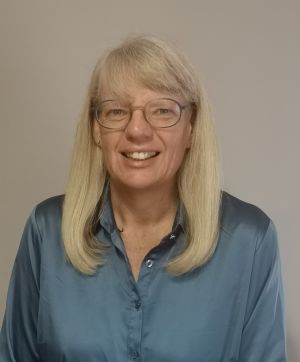
.png)
